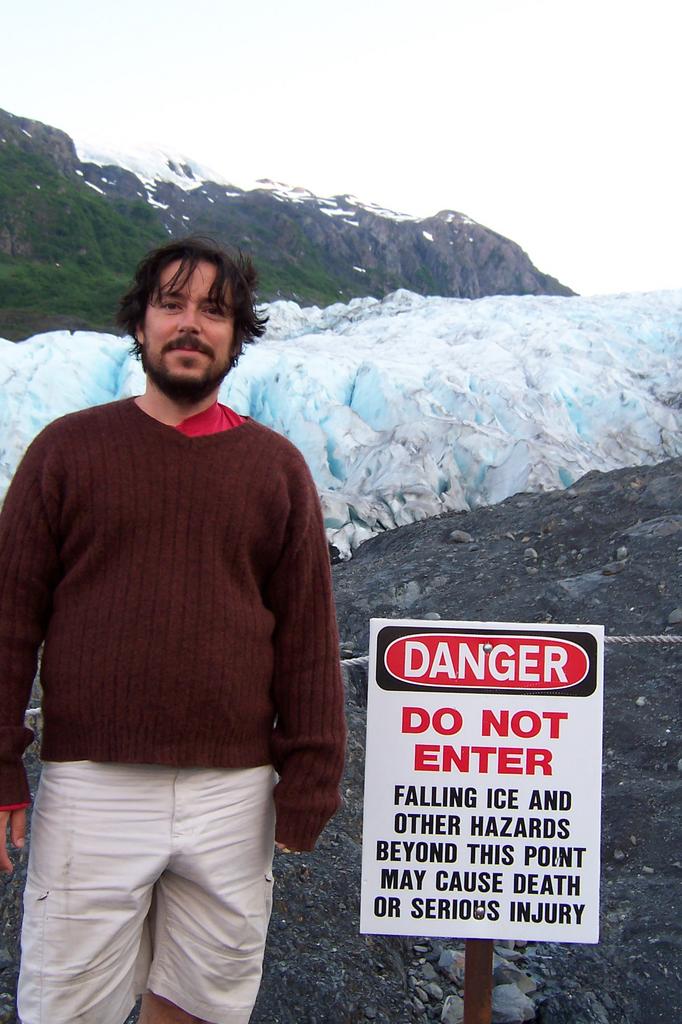On Edward Snowden (Blog Post)
I've been following the Snowden whistle blower case - I've been fascinated to see where this is all going, maybe obsessed would be a better word. From doing a little introspection I realise it's because I know this guy - not him particularly, but the kind of person he represents.
In the late 90s I worked as a contractor for the Defense Information Systems Agency (DISA) in Arizona. I a was low-level system administrator for their Solaris boxes, hooked up to the SIPRnet. Where I worked, it was a weird mix of civilian and military types. Lot's of saluting in the hallways and security that gave an appearance of things being secure. We had hard disk degausers and signs over swipe doors that warned agains "tailgating".
Some of the people there were not well. There was a guy working on PKI certificates, reassigned from the bomb disposal team. I think he may have had PTSD, as he showered with a Beretta in a ziplock sandwich bag. The atmosphere in the place see-sawed between techie cynicism and fervent nationalism. Most of the military guys, both ex and current were certain that we were fighting against an enemy that wanted to destroy America and steal our secrets. The techie contractors tended to roll their eyes at this and get on with doing their work. Snowden reminds me of a lot of these guys. Generally wanting to do well and do the right thing - but unwilling to submit to authority or the paranoia that comes with an "ultra-secure" working environment. Snowden would have known that security warning signs and hard drive degausers do not make for real security - not when you can slide a USB thumb drive into a socket and drag and drop.
Although probably cynical and unbowing to authority figures - I doubt that Snowden would be called a slacker. In some ways he reminds me a lot of Sifters here and other "internet People". I've used the phrase "angry young men who see the world in shades of black and white" to describe people on VideoSift who are unwilling to compromise on issues, or apologise, or see a more nuanced views on situations. And although it does sound sexist - I don't mean it to be - it's just more likely to effect young males - just like Asperger syndrome.
There are clearly two sides to fervently held beliefs for which you are willing to sacrifice everything. On one side you have religious fanatics, shoe bombers, vest wearers, ultra-nationalists and religious fanatics. On the other you have whistle blowers, counter-culture leaders, trans-humanists and game changers. I'm glad that there are people who don't live in the gray murk of compromises - like Edward Snowden. I hope he makes it to Venezuela.
I'd like to hear what you guys think about where this is all going. I have some ideas about a "post state" era that we might be entering. Leave a comment.
In the late 90s I worked as a contractor for the Defense Information Systems Agency (DISA) in Arizona. I a was low-level system administrator for their Solaris boxes, hooked up to the SIPRnet. Where I worked, it was a weird mix of civilian and military types. Lot's of saluting in the hallways and security that gave an appearance of things being secure. We had hard disk degausers and signs over swipe doors that warned agains "tailgating".
Some of the people there were not well. There was a guy working on PKI certificates, reassigned from the bomb disposal team. I think he may have had PTSD, as he showered with a Beretta in a ziplock sandwich bag. The atmosphere in the place see-sawed between techie cynicism and fervent nationalism. Most of the military guys, both ex and current were certain that we were fighting against an enemy that wanted to destroy America and steal our secrets. The techie contractors tended to roll their eyes at this and get on with doing their work. Snowden reminds me of a lot of these guys. Generally wanting to do well and do the right thing - but unwilling to submit to authority or the paranoia that comes with an "ultra-secure" working environment. Snowden would have known that security warning signs and hard drive degausers do not make for real security - not when you can slide a USB thumb drive into a socket and drag and drop.
Although probably cynical and unbowing to authority figures - I doubt that Snowden would be called a slacker. In some ways he reminds me a lot of Sifters here and other "internet People". I've used the phrase "angry young men who see the world in shades of black and white" to describe people on VideoSift who are unwilling to compromise on issues, or apologise, or see a more nuanced views on situations. And although it does sound sexist - I don't mean it to be - it's just more likely to effect young males - just like Asperger syndrome.
There are clearly two sides to fervently held beliefs for which you are willing to sacrifice everything. On one side you have religious fanatics, shoe bombers, vest wearers, ultra-nationalists and religious fanatics. On the other you have whistle blowers, counter-culture leaders, trans-humanists and game changers. I'm glad that there are people who don't live in the gray murk of compromises - like Edward Snowden. I hope he makes it to Venezuela.
I'd like to hear what you guys think about where this is all going. I have some ideas about a "post state" era that we might be entering. Leave a comment.






